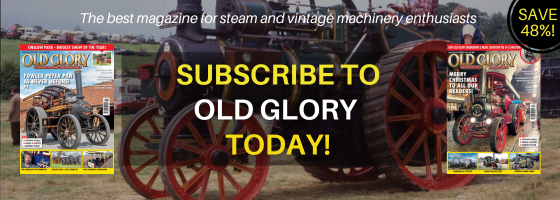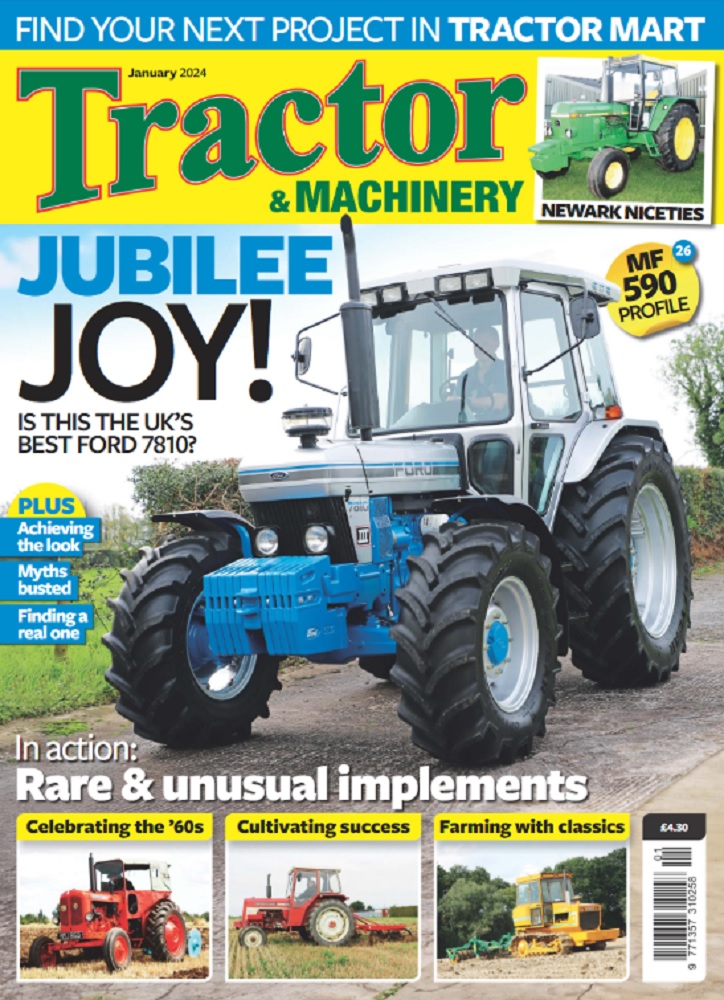Morris Minor van spotted in Bermuda!
Posted by Chris Graham on 13th September 2023
Mike Neale tracks down the only classic commercial on Bermuda, a bright orange, somewhat modified Morris Minor van.
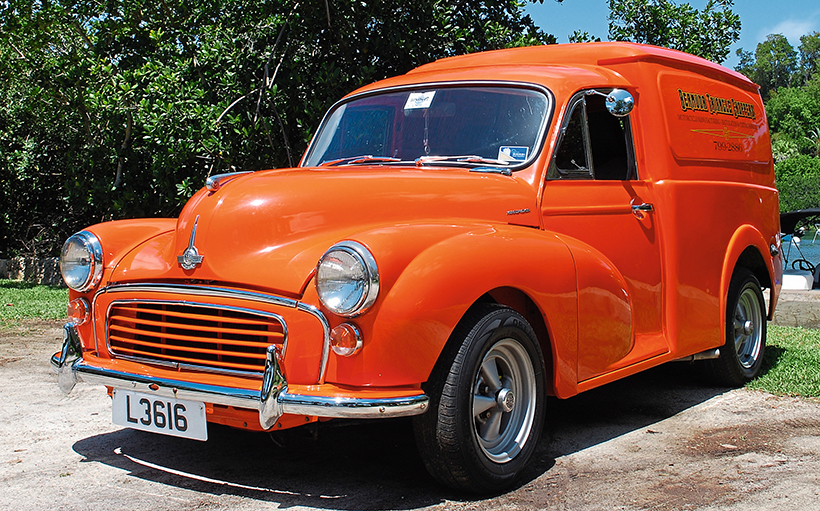
Paul Martins’ Morris Minor van is certainly hard to miss!
Bermuda, an archipelago consisting of over 130 individual islands (many linked together by bridges), is a British Overseas Territory located in the North Atlantic Ocean. The total land area is just 21 square miles and the population a little over 70,000.
Overall, Bermuda is a mixture of British and American influences. For example, they drive on the left but, since 1970, the currency has been the Bermudan dollar, which is pegged, 1:1, to the US dollar. Prior to that, the currency was Bermuda pounds, shillings and pence. There has been gradual metrification, so distances and speed limits are now measured in kilometres. The national speed limit is just 35kph, or roughly 22mph, though it must be said that few people stick to it.
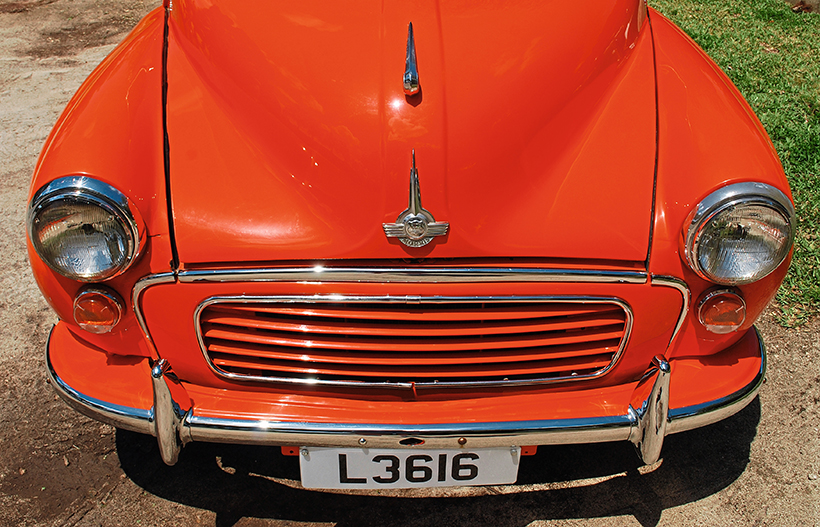
Saloon front bumper and overriders have been fitted. ‘L’ on the numberplate signifies a light commercial vehicle.
A few motor vehicles were imported during the early 1900s, but received quite a bit of opposition, to the extent that, in 1908, the Motor Car Act was passed banning them. After this there were no private motor vehicles on the island until 1946, despite various attempts over the years to overturn the ban. Transport consisted of horse-drawn vehicles, bicycles, a few government-owned motor vehicles and a short-lived railway line that ran from the town of Somerset to St. George’s (apparently the most expensive railway in the world per mile to construct, at that time), which operated only from 1931-48, being somewhat killed off by the enthusiasm for these new-fangled motor cars. The railway infrastructure had also deteriorated during the war years, and considerable investment would have been needed for it to have continued.
Initially most cars imported were British, with Austin 10s, A40 Devons, Hillman Minxes, Ford Consuls and Zephyrs, Morris Minors and Oxford MOs being very common in the early 1950s. Vans included Bedford CAs, Morris Oxford MCVs and, of course, Morris Minor LCVs.
The Bermuda Police force had a fleet of Morris Minors, which included saloons, Travellers and vans. Ironically, while many British Police Minor Panda cars were painted ‘Bermuda Blue’ (a pale blue) with white doors, actual Bermuda police cars were a darker shade of blue, and white. The local telephone company also used Minor vans.
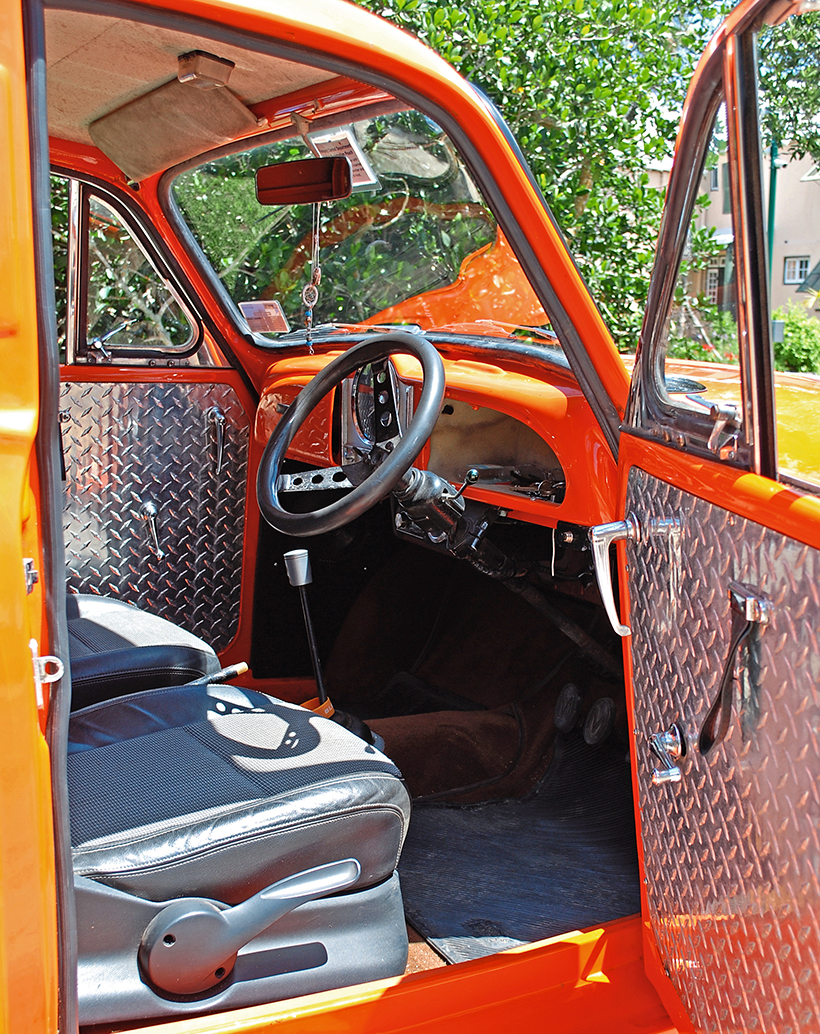
The van’s interior is somewhat modified from original.
Only Bermudan residents are allowed to drive a car and they need to pass a local driving test, even if they already hold a licence from elsewhere. Tourists can rent scooters up to 50cc and, more recently, small two-seater electric buggies. There’s a restriction of one car per household, unless you are a doctor. That means that if you want to buy a new car, you need to sell or scrap your old one. Imports of secondhand vehicles are not generally allowed, although you can send a car away to be restored off-island and then re-import it.
All this, as well as the humid, salty maritime climate, means that the chances of seeing a classic car on the roads is not very high (although now slightly higher on a Sunday, for reasons I’ll explain later). The chances of seeing a classic van are even lower. Although not quite zero.
The one and only…
There is, in fact, one classic van on the island. But if it’s out and about, there’s a very good chance you’ll spot it, because it’s painted an eye-catching bright orange. This Morris Minor Van is owned by Paul Martins, and is used daily for his motorcycle business, Bermuda Triangle Choppers. He also runs a car repair business, Martins Precision Automotive.
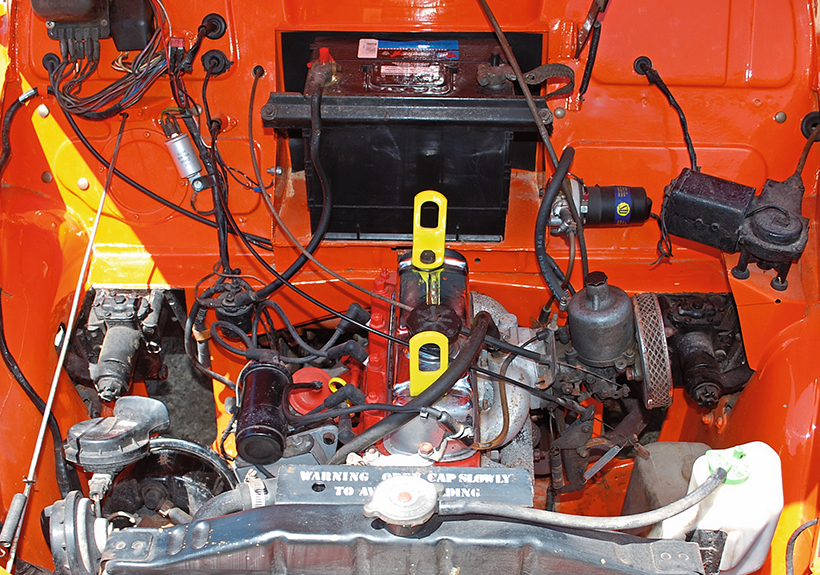
Standard 1,098cc engine is more than adequate as the overall speed limit is just 22mph in Bermuda.
Paul has owned the van for 25 years, and the previous owner, Ray, who was a plumber, used it for his business for 20 years, having bought it from the original owner.
“In summertime, Ray would put an open pick-up bed on it (without the cab back) then, in winter, he’d put the van back on,” explains Paul. “Now the van back is welded on permanently, though.”
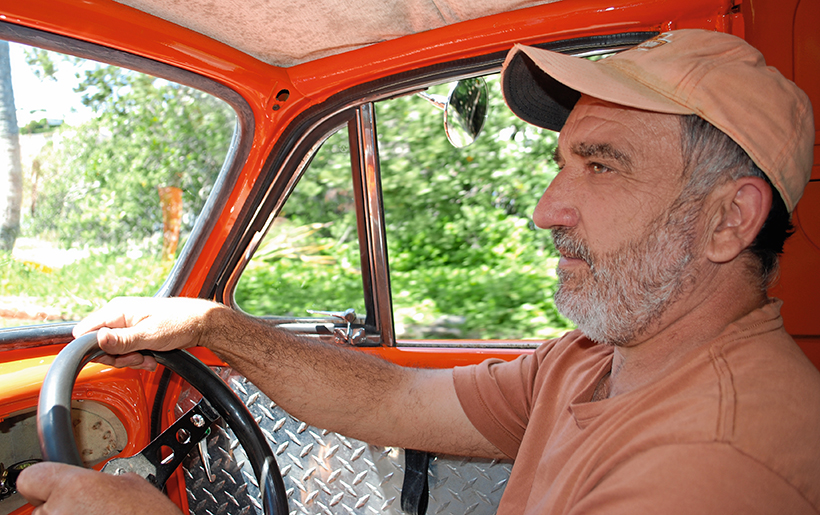
Paul Martins has owned the van for 25 years.
Ray replaced the gutters (a notorious weak point on Minor vans), fabricating them himself. Since Paul acquired it, he has carried out a lot of panel repairs, such as the bottoms of the doors, the sills and floors. New rear door surrounds had to be fabricated. The rear doors themselves are the van’s originals, as is the bonnet, but the driver’s door has been renewed. “The bonnet has aftermarket hinges after someone drove into the van, which have become pitted – not as long-lasting as the originals,” Paul laments. He did further restoration work and carried out a respray two years ago.
As you’ve probably spotted, the van is somewhat non-standard, with replacement Cragar wheels, a saloon front bumper and overriders, chequerplate door panels, a smaller sports steering wheel and reclining seats. The engine has been replaced, but is still a standard 1,098cc A-Series, complete with that unmistakeable Morris Minor exhaust. The mileometer currently reads 20,899 miles, but Paul believes this is the second time around.
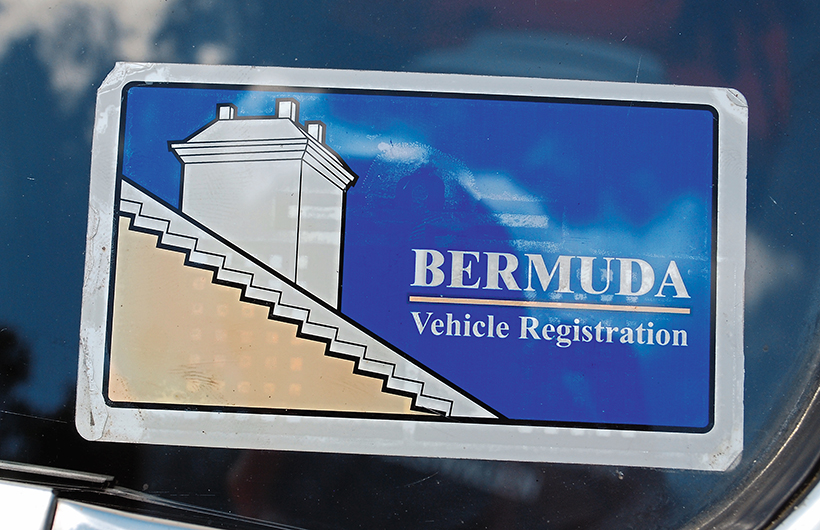
Bermuda registration sticker must be displayed.
“It has been the only Minor van on the island for about 40 years now. There are other Minors though – three Travellers, six saloons (two of which are daily-drivers) and one convertible, which was converted from a saloon,” notes Paul. One of the Travellers is, or rather was, a rare split-screen Series II which Paul has outside his workshop, but restoration would be a massive challenge. Let’s call it Yard Art.
Ray had collected a load of spares for the van. In the 1970s and 1980s, lots of Minors were going to the scrapyard, so he saved any useful parts. Paul has got three sets of gear linkages, for example, and loads of spare light lenses. This is fortunate, as the cost of importing anything is very high. There may be no income tax in Bermuda, but there are high import duties and shipping costs, and Paul reckons he has spent about $40k on the van. When he does need parts, he uses ESM and it normally takes just over a week for delivery from the UK.
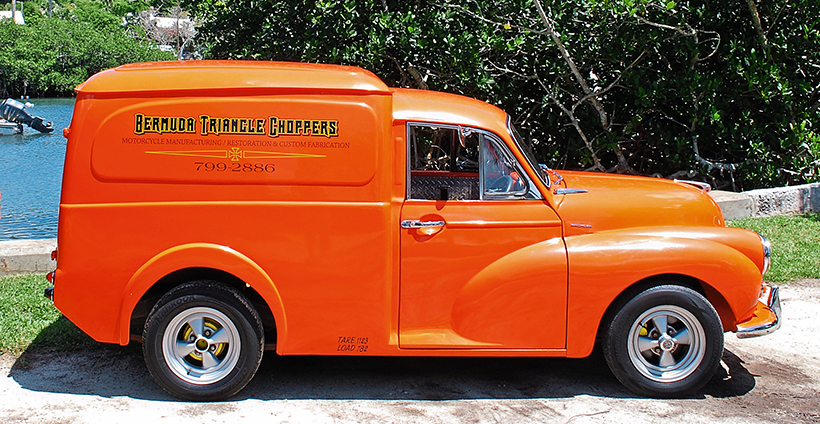
Paul uses the van daily, for his motorcycle business.
Realising that a lot of classic cars were disappearing off Bermuda’s roads, Paul began trying to save some of them, most of which would otherwise have been scrapped. He has 26 classic cars in storage, in various states of repair, and even more motorbikes and scooters.
Paul’s transport museum
In 2017, he opened a transport museum in a wonderful 19th Century warehouse building in Bermuda’s former Royal Naval Dockyard (see m.facebook.com/transportbda/). Gradually, more vehicles will be restored and displayed.
“I wanted to preserve the history for the next generation, so people can bring their children and grandchildren to see the transport that used to be on the island,” explains Paul.
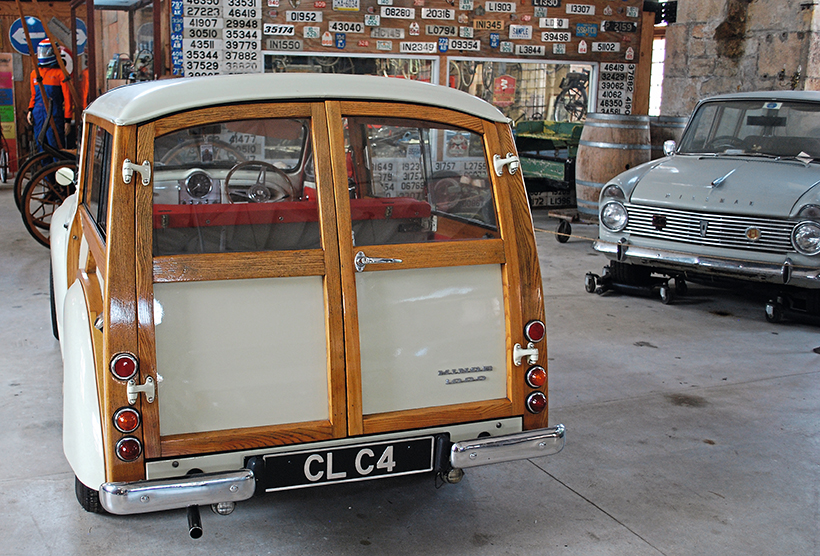
A glance inside Paul’s transport museum. He restored the Minor Traveller and Super Minx estate himself.
There are no vans in the museum, but cars on display when I visited included a restored Minor Traveller, Hillman Super Minx estate, Hillman Hunter estate which Paul restored himself and an MGB GT, among others. As well as the large collection of motorbikes, there are also pushbikes dating back to 1863. Old number plates are also displayed.
Bermudan private car registrations consist of a five-digit number. Previously, private car registrations were ‘P’ followed by a four-digit number but, after these ran out, the P was replaced by a zero on all existing cars, allowing thousands more registrations to be issued. American-style personalised registrations can also now be purchased. Doctors have six-digit numerical registrations. Taxis are registered ‘T’ followed by four numbers. Paul’s van registration has an ‘L’, for light commercial, followed by four numbers. There are also ‘IN’ registrations, signifying intermediate commercial, and ‘H’ for heavy commercials, with three grades, ‘HA’, ‘HB’ and ‘HC’ (nothing to do with Vauxhall Vivas…). Buses, tractors, motorbikes and so on all have their own specific registrations, as well.
Special Sundays
There’s a small but enthusiastic classic car scene on the island. A few years ago, Paul helped a group of other Bermudan classic car enthusiasts to persuade the Bermuda government’s Transport Control Department to instigate a new Classic Car Registration system, to stop all the old vehicles disappearing. This allows Bermudans to own classics in addition to their one regular car per household (although there’s nothing to stop your regular car being a classic, if you don’t want a newer car). These are issued with a ‘CLC’ number plate, with vehicles needing to be over 25 years old (initially it was 30 years, but this was subsequently reduced) and previously registered on the island as private car for 15 years.
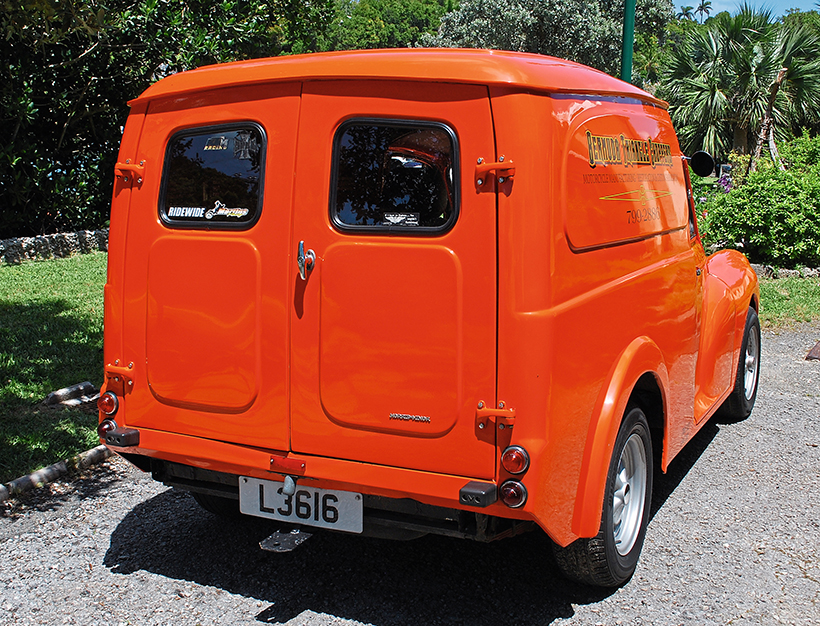
The van’s rear doors are original, although the area around them has been renewed.
CLC-registered vehicles can only be driven on Sundays and public holidays, which equates to 62 days per year. So, if you’re in Bermuda, keep your eyes peeled on Sundays for the greatest chance to spot a classic, or any day to see Paul’s orange van!
This feature comes from the latest issue of Classic & Vintage Commercials, and you can get a money-saving subscription to this magazine simply by clicking HERE
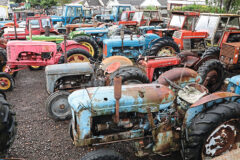
Previous Post
Much-anticipated Bill Cassie Collection sale not to be missed!

Next Post
Protruck Auction at The Great Yorkshire Showground

